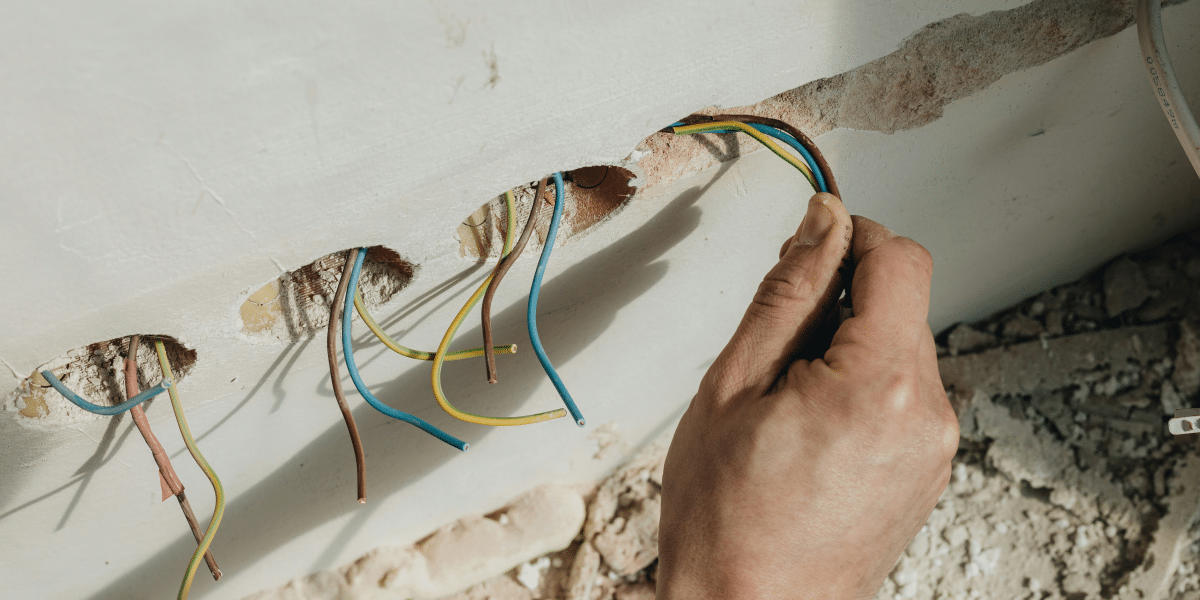The Flickering Lights Conundrum
Have you ever flipped a light switch only to see your lights flickering? This seemingly minor annoyance can signal a much larger electrical issue within your home. Flickering lights could be due to various reasons, such as a loose wiring connection, a faulty light fixture, or even deeper problems within the circuit itself. Loose wiring, for instance, poses a significant fire hazard as it may lead to overheating and potentially spark fires. Addressing this issue promptly eliminates inconvenience and protects your home from severe electrical risks.
Unusual Sounds: Humming, Buzzing, or Clicking
Electrical systems are designed to operate quietly, so unusual sounds like humming, buzzing, or clicking indicate something is amiss. These noises often stem from faulty wiring, overloaded circuits, or components that are beginning to fail. If you suspect a critical problem, it might be time to consider emergency electrical repairs to ensure your home’s safety. For instance, a buzzing sound from an outlet could signal a loose connection, leading to potential sparking and fire hazards if ignored. Similarly, a humming noise from the circuit breaker could indicate it’s not working correctly, undermining its function as your home’s primary line of defense against electrical surges. Addressing these auditory cues swiftly can prevent significant damage and ensure a safer living environment.
Frequent Tripping of Circuit Breakers
Circuit breakers are crucial in safeguarding your household from electrical overloads by disconnecting power when needed. Nevertheless, frequent tripping of your circuit breakers indicates a more serious underlying problem. Frequent tripping can result from an overloaded circuit, short circuit, or ground fault. Overloaded circuits occur when too many high-power devices are used simultaneously on a single circuit. On the other hand, a short circuit happens when a hot wire makes contact with a neutral wire, causing an excess flow of current. Ground faults are similar but involve a hot wire touching a grounded part of the system. Addressing these problems quickly can prevent long-term damage or dangerous electrical incidents.
Sparking Outlets or Switches
Seeing sparks come from an outlet or switch can be alarming, and rightly so. Sparks can occur for various reasons, such as overloading, aging wiring, or exposure to moisture. Overloading an outlet with too many devices can cause excessive heat, leading to sparking. Aging wiring becomes brittle and may spark when it cannot handle current flow effectively. Moisture can also contribute to sparking by bridging conductive pathways, especially in kitchens and bathrooms. Immediate attention to such issues is crucial, as they can escalate quickly and result in electrical fires.
Persistent Burning Smell
A burning smell from an electrical appliance or the wiring in your home is a cause for serious concern. This smell often indicates that wires are overheating, possibly even burning. One common reason is frayed insulation, which exposes wires and leads to direct current flow on unintended paths, generating excessive heat. If you detect a burning smell, it’s essential to turn off the power at the breaker box and consult a professional electrician immediately. Ignoring this warning sign can lead to electrical fires, putting your home and family at risk.
Warm or Hot Outlets and Switches
Outlets and switches in your home should always feel warm and warm. This condition typically indicates an overloaded circuit or faulty wiring. Both issues are severe and can lead to significant risks, including electrical fires. Overloaded circuits occur when the electrical demand exceeds what the wiring can handle, causing it to overheat. Faulty wiring might be old and deteriorated or damaged through physical means such as nail punctures or rodent activity. Addressing these signs as soon as they are detected is vital for maintaining a safe residential environment.
Inconsistent Power Performance
Have you ever noticed your appliances running inconsistently or lights dimming unexpectedly? These inconsistencies are more than minor annoyances; they could indicate broader electrical issues. Power surges, outdated wiring, or poor electrical infrastructure are often the culprits. Power surges, for example, can result from various sources, including malfunctioning appliances and downed power lines. They can cause significant damage to other devices plugged into the same circuit. Outdated wiring, common in older homes, may not meet current safety standards, posing the risk of electrical fires. Updating and regular maintenance can improve the reliability and performance of your home’s electrical system.
Electrical Shocks
Experiencing an electrical shock when plugging in or touching an appliance is scary and dangerous. These shocks can result from ground faults, poor wiring, or issues with the appliance itself. A ground fault occurs when an electrical current finds an unintended path to the ground, often through a person’s body, leading to a shock. Poor wiring may expose live wires, making any contact hazardous. Defective appliances can also be culprits for improperly transferring electricity. Immediate inspection and repair are essential to avoid harmful electrical shocks in the future.
Conclusion
Recognizing and addressing electrical problems early can save you from more significant issues. From flickering lights to unexpected shocks, you are acting quickly, and consulting professionals when necessary is essential. Such proactive measures prevent severe electrical hazards and ensure the smooth and efficient functioning of your home’s electrical system. For more detailed information on handling electrical issues, you can refer to this resource on electrical safety. Ensuring proper maintenance and immediate repair of electrical problems can significantly enhance the safety and comfort of your home.
Published by: Holy Minoza


















